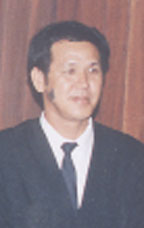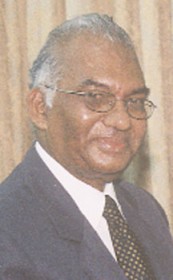Caricom General Insurance Company Ltd, formerly GuyFlag, recently won judgment in the High Court after years of fighting for a licence to operate an insurance business in the country.
The company had applied for registration under the Insurance Act. No. 20 of 1998, but the application was denied three times and the company was instructed to cease all insurance business. The suspensions which were issued to Caricom General Insurance were never made public. There is thus far no indication that the government will be appealing the decision.

GuyFlag was embroiled in a $400M insurance fraud perpetrated against the Sacred Heart church in 2005 and the company’s name was changed under new management.
Caricom General Insurance had approached the High Court earlier this year seeking several orders, including a writ of certiorari directed to the Governor of the Bank of Guyana, Lawrence Williams quashing his decision to deny the company registration. The company also applied for an order calling on Williams to show cause why he should not be compelled to register Caricom General Insurance as an insurer. Chief Justice (ag) Ian Chang had temporarily granted the orders, but he made them absolute in October after hearing arguments from Williams and the company.
Former Attorney General Doodnauth Singh, in his capacity as Chairman of the Board of Directors of Caricom General Insurance Inc., said in an affidavit in support of the motion that the company had initially applied for registration in February 2003, but was carrying on its insurance business.

Singh said the company employed 125 persons who were dependent on it and that policy-holders were able to transact other business as a result of their insurance policies. But he complained that 34 months after the Insurance Act of 1998 came into operation, in 2002, the then Commissioner of Insurance (COI) Maria van Beek failed to register the company.
According to Singh, van Beek attempted to stop the company from carrying on the business as insurers “despite the fact that it had submitted all the necessary information requested and complied with the provisions in Guyana under the 1998 Act.”
Singh made mention of a correspondence which van Beek sent the company where the issue of fraud was raised. She had referred to an issue of fraud which was before the Director of Public Prosecutions, in addition to the Sacred Heart case. In the letter dated September 26, 2005, van Beek wrote: “More recently your company has been implicated in what appears to be fraud involving the Roman Catholic Church which has been reported to my office and under investigation by the police.”

Van Beek noted that the issues raised serious concerns about the company’s ability to conduct insurance business in a professional and compliant matter. “I am therefore unable to satisfy myself with regard to the financial position of the company, that the management and board of the company are fit and proper and that the company is willing to comply with all applicable provisions of the Act,” she stated. She then rejected the application based on the reasons outlined.
Caricom General Insurance responded to van Beek’s letter, but in October 2005 she wrote the company calling on them to cease all operations pertaining to the writing of insurance business. This was later challenged in court, according to Singh. However, the matter was withdrawn after van Beek informed the company that the application would be reconsidered.
Singh said that van Beek had suggested that the company make a new application, adding that they were allowed to carry on insurance business in the interim. But in December 2008, van Beek wrote them saying the application had been denied and she again called on them to cease all operations with respect to insurance business.
He said that in March 2009 van Beek agreed to reconsider the representation to suspend her decision provided that the company put itself in order with respect to Section 79 of the Insurance Act. Section 79 pertains to changes in management and in keeping with the Act the company is required to write the Commissioner of Insurance before any appointments are made with respect to chief executive officer, chief actuary and chief controller.
Singh said he replied to van Beek in April 2009 informing her that the matters had been complied with and according to him, insurance business continued after there was no objection.
However, Williams wrote the company in March 2010 informing them that van Beek’s decision to suspend its operations was reviewed and that it remained in force. Williams again called on the company to cease all insurance business.
The company was incorporated in 1997 and the name changed in 2006.




